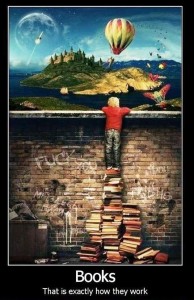 There are two kinds of people: those who can only read or watch a book or film once, and those who delight in returning to certain works, whether they be favorites or those that they did not immediately connect with on an initial read or viewing. The people who belong to the first category are often this way for one of two reasons: either they have excellent memories and do not need to return to works in order to recall them in immense detail, or their interest lies solely in the entertainment value of the work, so once they become familiar with the outcome of the plot, their interest in the work is decreased. I belong to the latter category; I am constantly rereading and re-watching novels and films.
There are two kinds of people: those who can only read or watch a book or film once, and those who delight in returning to certain works, whether they be favorites or those that they did not immediately connect with on an initial read or viewing. The people who belong to the first category are often this way for one of two reasons: either they have excellent memories and do not need to return to works in order to recall them in immense detail, or their interest lies solely in the entertainment value of the work, so once they become familiar with the outcome of the plot, their interest in the work is decreased. I belong to the latter category; I am constantly rereading and re-watching novels and films.
Though I enjoy using film and literature as forms of escapism, for me their true merit lies not only in the novelty of the story, but rather, in what they teach us about the world. Personally, each time I reread a book or re-watch a film, I take something new away from it.
I did not enjoy Sofia Coppola’s ‘Marie Antoinette’ despite the fact that she is one of my favorite directors. I expected an entirely different film and because I was so focused on the historical inaccuracies, I was unable to enjoy it for what it is, in the way that I do now after watching it several times.
Chuck Palahniuk’s novel, Fight Club, and the excellent film adaptation by David Fincher, are renowned for the shocking twist that comes toward the end of the story. However, revisiting the story with an awareness of the twist offers a different experience entirely
The same still applies to critically acclaimed films and books I didn’t enjoy on a first read or viewing. I feel that our personal experiences play a significant role in how we respond to works, and of course with age our tastes alter considerably. It is often the case that what we loved when we were younger can be awful when we revisit them as adults, and the opposite can also apply.
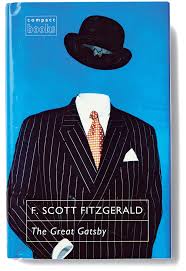 For instance, when I first read Fitzgerald’s The Great Gatsby at age fourteen I thought it was overrated, but when I returned to it at seventeen I was blown away. I attribute this to age: though I admired the beauty of Fitzgerald’s prose the first time, I wasn’t in a position to fully appreciate the tragic story because my own experiences hadn’t yet given me the insight. It was precisely for this reason that I waited to read Sylvia Plath’s The Bell Jar until I was nineteen. Being a teenager is difficult enough without triggering material and I knew I was too sensitive to read her work when I first came across it, but at nineteen I was able to read it without being adversely affected. Bearing this in mind, then, rereading and re-watching is always worthwhile because I believe that the point in life you are at heavily impacts your opinion of a work.
For instance, when I first read Fitzgerald’s The Great Gatsby at age fourteen I thought it was overrated, but when I returned to it at seventeen I was blown away. I attribute this to age: though I admired the beauty of Fitzgerald’s prose the first time, I wasn’t in a position to fully appreciate the tragic story because my own experiences hadn’t yet given me the insight. It was precisely for this reason that I waited to read Sylvia Plath’s The Bell Jar until I was nineteen. Being a teenager is difficult enough without triggering material and I knew I was too sensitive to read her work when I first came across it, but at nineteen I was able to read it without being adversely affected. Bearing this in mind, then, rereading and re-watching is always worthwhile because I believe that the point in life you are at heavily impacts your opinion of a work.
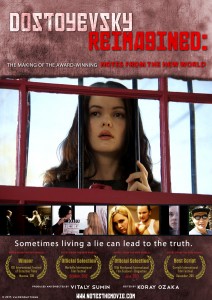 |
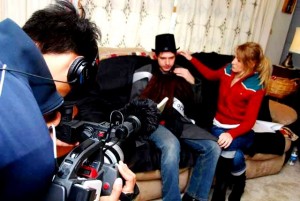 |
Vitaly Sumin’s films are precisely the type to re-watch, because they posit Dostoyevsky’s classic love stories in a modern-day Los Angeles, giving them a fresh spin and rendering the films multi-layered because of their reworking in a new setting. I expect his new film, Dostoyevsky Reimagined: the Making of Notes from the New World – BTS, to continue in a similar vein, providing plenty of thought- provoking material that will be a delight to revisit.


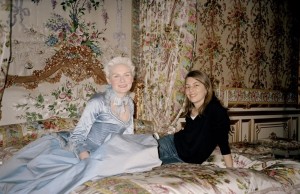

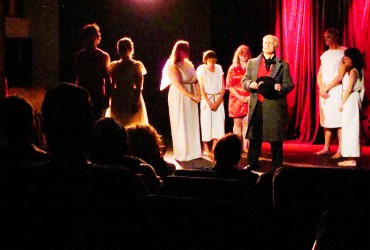
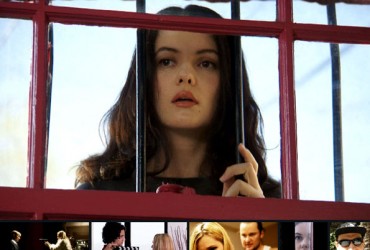


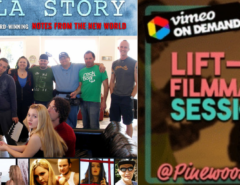
Leave a Reply